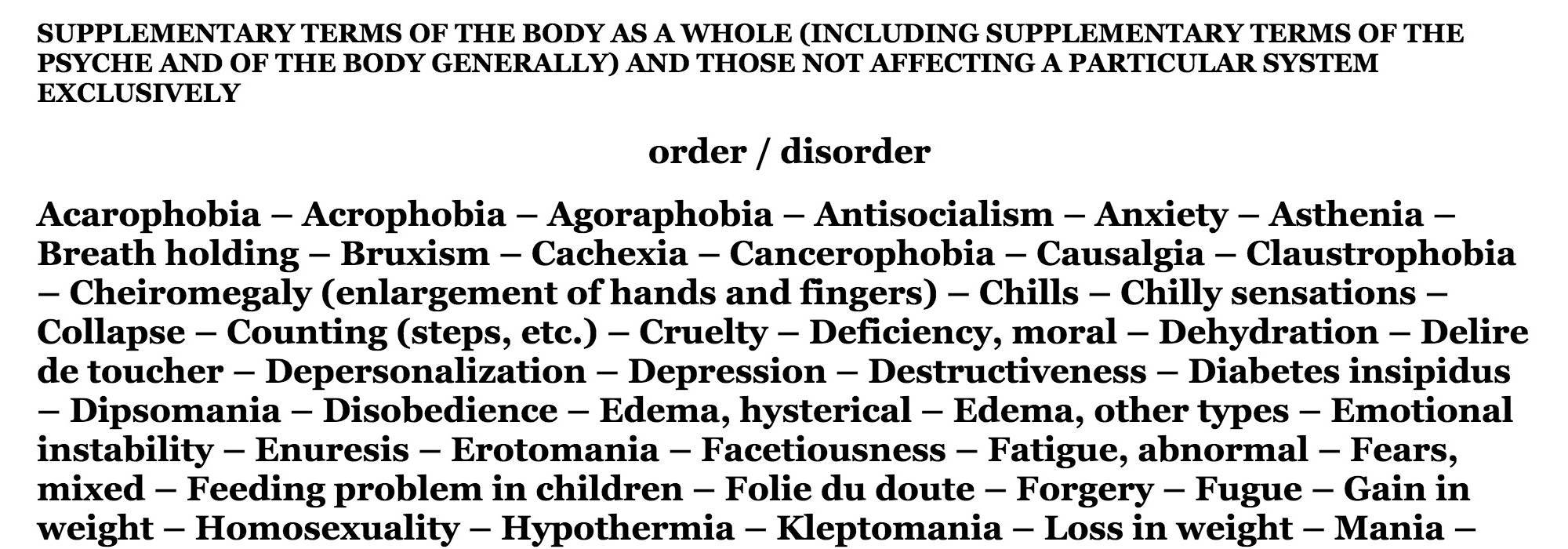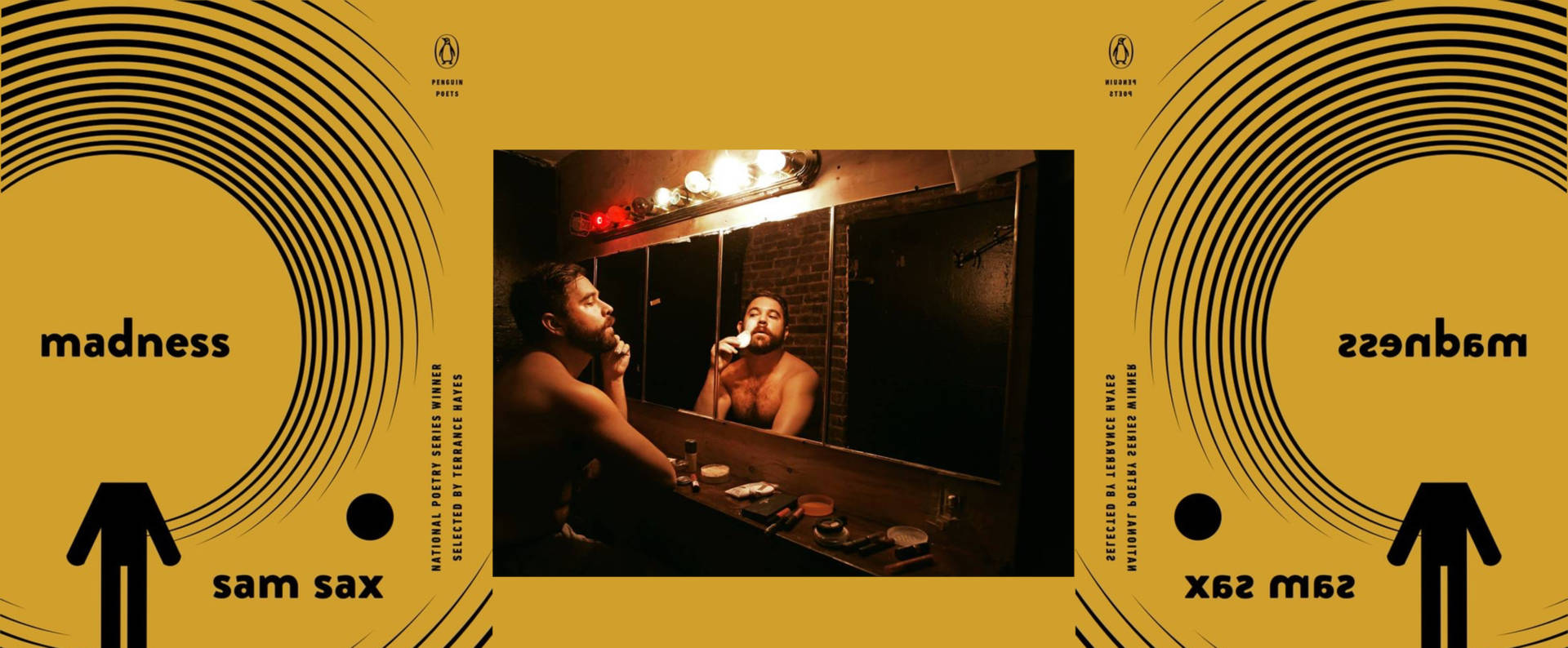There is something aesthetic about the nomenclature of disease. Our language for illness relies heavily on Hellenic, Germanic, and Latin roots. Just take a look at Appendix C of the American Psychiatric Association’s Diagnostic and Statistical Manual (published in 1952) below. Those consonant clusters are interrupted by the rare and delicate use of the French — Folie de doute — and the never-not-unnerving inclusion of homosexuality as a mental illness.
In this way, the first DSM enacts a kind of horrific poetry, devastating to those disenfranchised from the power to name.

Sam Sax’s debut poetry collection, Madness, uses this same appendix to set off its four sections. When the first DSM was published, religious constructs scaffolded scientific understanding — and religious concepts of sin were attached to mental health. Throughout Madness, the appendix serves as a constant and brutal reminder of the fact that homosexuality was once — and still sometimes is — described as disease, defect, developmental arrest, and demonic possession.
Chosen by Terrence Hayes for Penguin Books as winner of the National Poetry Series, Madness bends back to this problematic history with an unblinking and haunting quality. In “On Conversion Therapy” Sax writes:
grandpa’s initial response
upon learning i was queer
was to look to history
for the ways i could be fixed***
hypnosis : group talk : cocaine : bladder washing : electroconvulsive shock therapy : strychnine : chemical & nonchemical castration […]
***
the first endocrinologist experimenting in the field
transplanted the testicles of straight men into homosexuals
attempting to hormonally reorder their orientation.
of course without immunosuppresants their bodies
rejected these unfamiliar organs.

Sax shows us the mind as an electric force, a dark ether to be reckoned with. Many of his poems begin with the pseudo-science of yore and end with meditations on the mysteries of the mind. Often, they read like an illumination of the dark side of the moon:
the surgeon peels each man
back careful as leather-bound
bible & all the dead letters,
all the generations experimented
upon, the enslaved & saved
alike are there, before
our interiority finally clicked
into place. once, before science
drew its maps, you might have cut
open a dead man’s stomach
& watched a masque of old horses
come dancing out.
In Madness, Sax questions who owns the naming rights to our pain. His poems are mostly titled after scientific terms for mental illnesses, but he gives us humanity instead of clinical descriptions. “Satyriasis,” or the “uncontrollable or excessive sexual desire in a man,” for instance, is unbridled desire for life:
… i am large.
i contain mitochondria clubbed
into cells, i contain blue
cellophane shoved in my mouth,
i contain unnatural lubricants,
the smell of latex & fennel. o
doctor, what a white coat you
have. o father what sweet rope.
o government how absurd
to believe desire requires
governance. keep giving lust
an ugly name, i’ll keep making it
sing…
Reading Madness made me feel the most sane I’ve felt in 2017. I highly recommend this debut collection.


